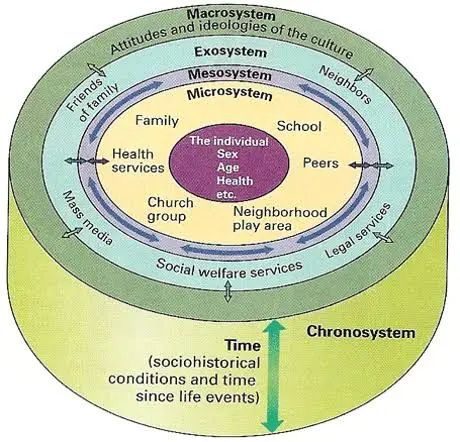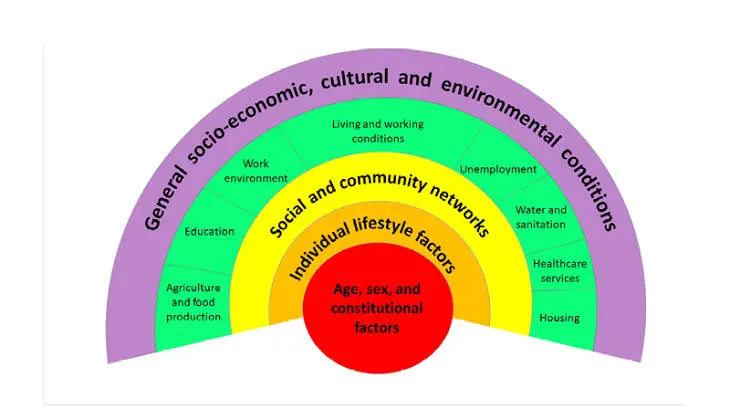I think you commented in the old mega right on the buzzer @HexaSnoot@hexbear.net. Bringing it over here to answer:
(About Maslow's)
It's individualistic and a cooptation of better concepts and it's just gross but your run of the mill therapist who just scraped by to get their qualification is almost certainly going to like it.
What are those better concepts?
Power isn't given, it's something that is taken.
This is particularly endemic in how privileged people talk about "giving people a voice". Please stfu.
Lol Everything onwards from this really helps me understand more about power dynamics. Thank you.
People tend to graduate from Maslow's Hierarchy (though far too few) on to things like Bronfenbrenner's Ecological Systems Theory:
While that one is better and it doesn't fall trap to hyperindividualistic nonsense, I think this one falls into a different trap: "the net that catches everything catches nothing". I could talk about the arrows but there's no fucking point. Either point them somewhere useful or if you can't do that then your diagram is designed incorrectly or you are being patronising of your audience.
I'm partial to the Dahlgren and Whitehead model, despite its flaws:
It's simple enough to grasp without requiring an hour long lecture first. It provides key information without listing every goddamn detail (Is the chronosystem in Bronfenbrenner really necessary?? Do you genuinely need to represent the flow of time, that the things in the present come from the moment that directly preceded them and so on? [Is it too late to do a coconut tree joke? Would that be in poor taste now?] Do you really need to tell people that time affects everything? Why did you feel the need to call it a chronosystem - was "time" or "history" too simple? Would a two-sided arrow with the downwards poiting one labeled as "past" and the one pointing to the surface layer labeled as "present" be too simple and intuitive to grasp? What, did you run out of space to talk about the flow of ideas and neuronal networks and the thermohaline conveyor and intra-religious conflict fuelled by schisms?)
The problems with this one are there too - it's explicitly depoliticised, the green part is okay but it's not really very cogent but it's more like a scattershot of things that Dahlgren and Whitehead tried to list 10 factors for but they only managed to phone in 8 before calling it good; agricultural production factors matter yet manufacturing production factors are absent (tell me you're living in a so-called "post-industrial" country without telling me), the centre doesn't show it in this one but other ones are revised to have a family to make it less individualistic and yet in doing so it either ignores intrafamiliar factors or it just kinda shoehorns them it "There - a family. Now you fill in the blanks!" and it either centres the nuclear family (Can you tell which countries this is made for and which type of country it was made in yet?) or they put grandma in so she can be in the nice picture as well before they shuffle her back off to the nursing home.












